What is Bentonite Clay and what are its properties?
Bentonite clay, also known as bentonite, bentonite clay, colloidal clay, Denver clay, wilkinite, tailorite, and sodium bentonite, is a type of naturally occurring clay that forms from the decomposition of volcanic ash. This clay is known for its ability to absorb and eliminate toxins, heavy metals, and other impurities, which makes it especially useful in the field of natural cosmetics.
Among its most outstanding properties are its ability to:
1. Absorb and eliminate toxins and impurities.
2. Retain and release moisture in a controlled manner.
3. Provide essential minerals for the health of the skin and hair.
4. Help regulate the pH of the skin.
5. Stimulate blood circulation in the area of application.
Details on the production and use of Bentonite Clay in cosmetics
Bentonite clay is formed from the decomposition of volcanic ash and is extracted from mines located in different parts of the world. After its extraction, the clay is subjected to a drying and grinding process to obtain the fine powder that is used in cosmetic products.
Bentonite clay used in cosmetics must meet certain quality and purity requirements, guaranteeing that it does not contain toxic or polluting substances. In addition, it must be subjected to safety and efficacy tests before being used in products for skin and hair care.
Benefits of Bentonite Clay for skin and hair when used topically
Bentonite clay offers various benefits for the skin and hair, among which are:
1. Deep cleaning: Thanks to its ability to absorb and remove impurities, bentonite clay is ideal for deep facial and hair cleansing.
2. Detoxification: By removing toxins and heavy metals, bentonite clay helps detoxify the skin and scalp, improving its appearance and health.
3. Gentle exfoliation: Bentonite can act as a gentle exfoliant, removing dead cells and promoting cell renewal.
4. Regulation of sebum: Bentonite clay is effective in controlling sebum production, being especially useful for oily or acne-prone skin.
5. Improved circulation: The application of bentonite clay to the skin and scalp stimulates blood circulation, which promotes oxygenation and cell nutrition, improving the health and appearance of both skin and hair.
Who can benefit from using Bentonite Clay?
Bentonite clay is suitable for all skin types, but offers specific benefits depending on the skin type:
1. Oily or acne-prone skin: Bentonite clay is effective in regulating sebum production, helping to control shine and the appearance of pimples.
2. Combination skin: Bentonite clay helps to balance oily and dry areas, providing a deep clean without drying the skin.
3. Dry or sensitive skin: Thanks to its ability to retain and release moisture in a controlled manner, bentonite clay provides hydration to dry or sensitive skin without causing irritation.
4. Mature skin: By stimulating blood circulation and cell renewal, bentonite clay can help improve the elasticity and firmness of mature skin, as well as reduce the appearance of wrinkles and expression lines.
What products can I make using Bentonite Clay?
Bentonite clay is very versatile and can be used in a wide variety of natural cosmetic products. Some examples include:
- Facial and hair masks: 20 grams of bentonite clay with water, vegetable oil or hydrosol until a homogeneous paste is obtained. Apply to skin or scalp and leave on for 10-15 minutes before rinsing.
- Scrubs: Combine 10 grams of bentonite clay with 1 tablespoon of sugar or salt and water or vegetable oil until you get a grainy paste. Gently massage into skin or scalp and rinse.
- Shampoos and conditioners: Add approximately 10-20 grams of bentonite clay to your regular shampoo or conditioner and shake well to mix. Use as usual.
- Body lotions and creams: Add approximately 10-20 grams of bentonite clay to your favorite body lotion or cream to enhance its detoxifying and nourishing properties.
Other dosages
- To form gels: 8 - 25%
- As emulsion stabilizer: 1%
- As suspending agent: 0.5 - 5%
- As adsorbent (clarifier): 1 - 2%
- In soaps no more than 3%
In conclusion, bentonite clay is a very valuable natural ingredient in the field of cosmetics, offering numerous benefits for the skin and hair. Its versatility and unique properties make it an excellent choice for those seeking natural and effective skin and hair care solutions. Do not hesitate to incorporate it into your beauty routines and experience its multiple benefits.















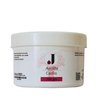
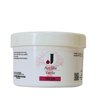
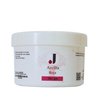
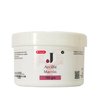
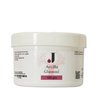


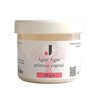
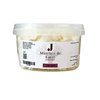
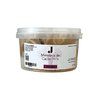
 tienda@ladespensadeljabon.com
tienda@ladespensadeljabon.com  Location
Location (+34 ) 944 657 841
(+34 ) 944 657 841




 (+34 ) 608 651 314
(+34 ) 608 651 314